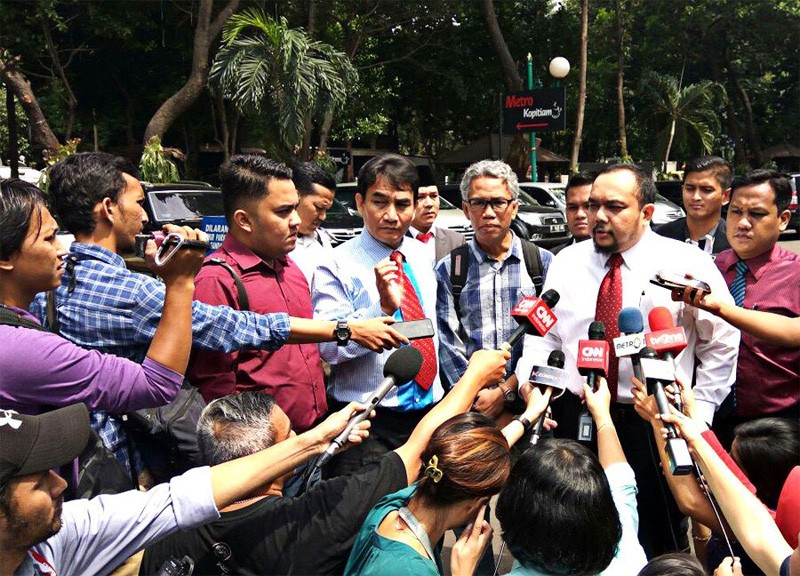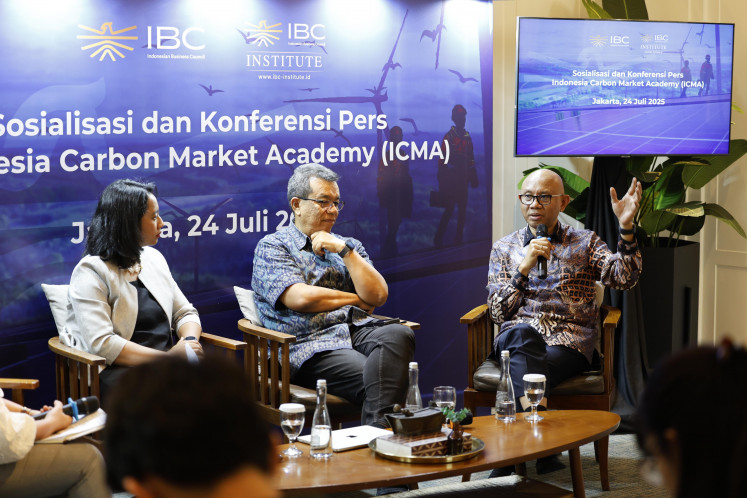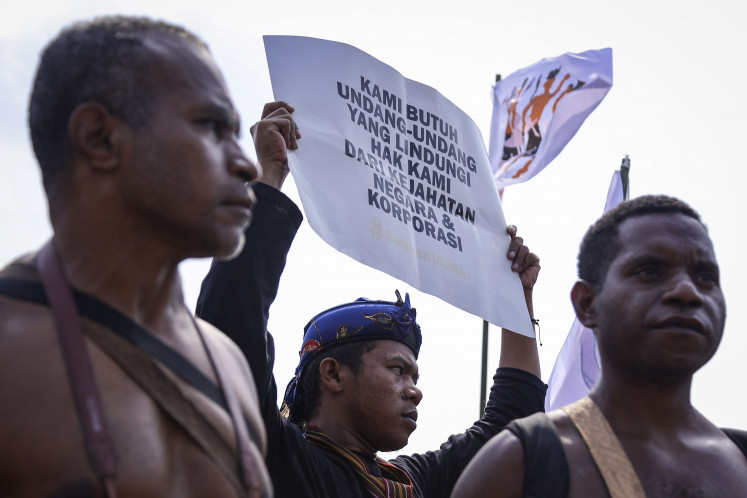Popular Reads
Top Results
Can't find what you're looking for?
View all search resultsPopular Reads
Top Results
Can't find what you're looking for?
View all search resultsINSIGHT: Broadcasting lies, presumptions in social media
Change text size
Gift Premium Articles
to Anyone
I
t was said that Socrates once responded pre-emptively when an acquaintance was trying to bring up recent gossip on Diogenes — this is known popularly as the triple test.
As the acquaintance barely got to “Socrates, do you know what I just heard about Diogenes?” Socrates cut him short and asked the triple test; first, whether this acquaintance was sure that the information was true. When the friend replied that he wasn’t, Socrates asked the second question as to whether the news was good; and when the friend said it was not Socrates asked the final question: “Is what you want to tell me about Diogenes going to be useful to me?”
When the would-be bearer of gossip replied that it was not, Socrates concluded that if the news was neither true nor good nor of any use to him, there was no reason to share it with him or anyone else.
The triple test attributed to Socrates holds that truth, goodness and usefulness are essential, especially in this current abundance of information (and misinformation) on social media. It has become a matter of ethics and is relevant to what Franz Magnis-Suseno had to say in one of his lectures on press ethics.
Magnis-Suseno stressed the responsibilities related to the function of the press i.e. first, uphold the ethos of truth, second, openness, therefore facilitating exchange of ideas and aspirations and third, assist the people in forming opinions.
Lately the media chatter has been full of news related to the so-called “blasphemous” comment by Jakarta Governor Basuki “Ahok” Tjahaja Purnama and the consequences following it. This “news” was shared and broadcast, much of which was often clouded by religious zeal, thus overshadowing the essence of the matter.
Though the more responsible media have been respectful, careful and objective in reporting the events, there are still many that take advantage of religious naivety and sentiment in framing them, not to mention self-proclaimed zealots babbling on social media.
It is perfectly normal to share and discuss topics on social media — basically that is what social media should be about; but in order to make it useful Socrates’ triple test should first be applied prior to uploading such discussions. “Useful” in this sense follows Magnis-Suseno’s function that the topic is open for discussion and facilitates an exchange of ideas, assisting participants in forming opinions and gaining new knowledge.
Exchanging ideas based on a particular topic demands that it is open for discourse; therefore a healthy exchange can commence, leading to the forming of opinion and new knowledge.
The problem with much “news” circulating on social media regarding the accusations against Ahok, for example, and many other issues is that it is based on presumptions, laden with bias and logical fallacies and directed toward predetermined conclusions.
The initial video footage, as proof of Ahok’s “blasphemy”, is conjecture to say the least (and libelous at its worst) — this already fails Socrates’ scrutiny of firstly ensuring credibility of the message and/or bearer. But when antagonists already have prejudices and presumptions about Ahok, they will use this information — however unreliable — to “prove” their case.
This is not a case where evidence leads to opinion, rather the use of favorable evidence — again, however unreliable — to support an already made-up opinion.
Aside from the fact that the information does not come from or pertain to any good (Socrates’ second test); arguments that follow it are thus full of logical fallacies. Examples are the straw man argument by which accusers state what they claim Ahok meant despite his not saying that; the argumentum ad verecundiam (appeal to authority) by saying that because the Quran says so, no one can speak against God and anything else is blasphemy; and even ad hominem attacks on Ahok based on his race and religion rather than his arguments.
Arguments like these lead nowhere, and arguing with someone who zealously holds on to his made-up mindset with no intention of even considering the facts basically becomes a waste of breath. There is no discussion, no exchange of ideas when participants are not open to new (or even in this case — real) views and ideas.
Which brings us to Socrates’ third test of usefulness; i.e. what would we gain from such an exchange? We could agree or disagree with the shared or broadcast message but the discourse stops there; we gain no new knowledge to either build or challenge or even strengthen our opinion. Therefore such “news” serves us no purpose.
This is a shame as social media has the potential to become the medium of discourse for the masses. Unlike one-way broadcast media in which the audience has no real way of being involved in the conversation, social media enables direct and personal involvement among the population.
Imagine the potential power given to the populace in having a healthy and productive public discourse that boosts knowledge. However, this utopian situation can only come about if the knowledge material itself — i.e. the messages being shared — contains reliable, positive information open for discourse.
Unreliable, deceptive or negatively framed information on social media thus eschews social media’s potential role of building humanity through a healthy exchange of ideas to promote new knowledge.
_________________________________
The writer is head of strategy at Karsa Ide Karya and teaches advertising and marketing at the University of Indonesia (UI).










